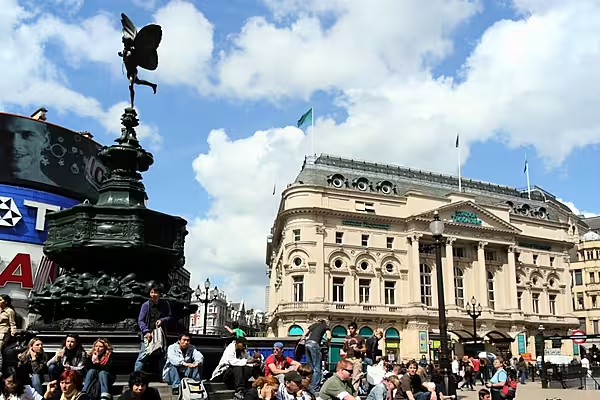British retail sales unexpectedly fell in July, official data showed on Friday, suggesting at least some consumers skipped shopping to follow England's run in the Euro 2020 soccer tournament, or stayed at home due to rising COVID-19 cases.
Retailers reported that the tournament - in which England reached the final - and bad weather kept shoppers away from stores, the Office for National Statistics said.
Sales volumes fell by 2.5% from June, the biggest drop since January when Britain returned to lockdown. Economists polled by Reuters had expected a 0.4% month-on-month rise.
An ONS official said there had been no feedback from retailers that worries about rising coronavirus cases were behind the drop in sales.
Impact Of The Delta Variant
But analysts said the size of the fall probably reflected the impact of the fast-spreading Delta variant and the requirement for hundreds of thousands of people to isolate after being "pinged" by a government tracing app.
"July's sharp decline in retail sales can be blamed largely on rising COVID-19 cases, which prompted some households to steer clear of shops and forced others into self-isolation," said Samuel Tombs, an economist with Pantheon Macroeconomics.
The self-isolation requirement for contacts of someone with COVID-19 has now been dropped for people who have had two vaccinations.
The ONS said food store sales were down by 1.5%, reflecting a jump in June and the opening of more hospitality venues. Non-food stores reported a fall of 4.4%, though sales remained 5.8% above their pre-pandemic levels in February 2020.
In a possible sign of renewed caution among shoppers, or July's bad weather, online sales rose to 27.9% of total spending after hitting a pandemic low in June.
Earlier this month, Barclaycard said its data for July showed a jump in entertainment spending as people returned to cinemas, theatres and sports events.
Bounce-Back Slows
Britain's economy has recovered most of its nearly 10% slump in 2020 when the country suffered one of the world's heaviest coronavirus death tolls and stayed locked down for longer than many other European nations.
But there are signs that the bounce-back has slowed after a strong March and April as restrictions began to be lifted.
An opinion poll published on Friday by market research firm GfK showed consumer confidence dipped only slightly in August from its highest level since before the pandemic.
But it also showed consumers were less willing to make major purchases and were opting to save more money.
Economic Recovery
The recovery in the economy has also helped finance minister Rishi Sunak to reduce the government's huge borrowing.
The ONS said the budget deficit in the first four months of the 2021/22 financial year was running £26 billion ($35.43 billion) below an estimate set out by the Office for Budget Responsibility, the government's forecaster, in March.
July's borrowing of £10.4 billion was less than a median forecast of £11.8 billion in the Reuters poll.
Sunak is on course to spend a total of £350 billion in his response to the coronavirus crisis, but his jobs subsidies programme, the most expensive element, is being wound down.
The deficit in July also narrowed thanks to higher tax receipts as individuals filed tax returns before a deadline.
The Institute for Fiscal Studies, a think tank, said the deficit remained huge at 10.8% of economic output in the 12 months to July, more than four times its historic average, and would probably require "very difficult decisions" when Sunak gives a half-yearly update on the public finances on 27 October.
According to Nielsen, a combination of good weather, a bank holiday weekend and the Euro 2020 football championship contributed to grocery sales remaining high in the UK in June despite tough comparatives with last year.













